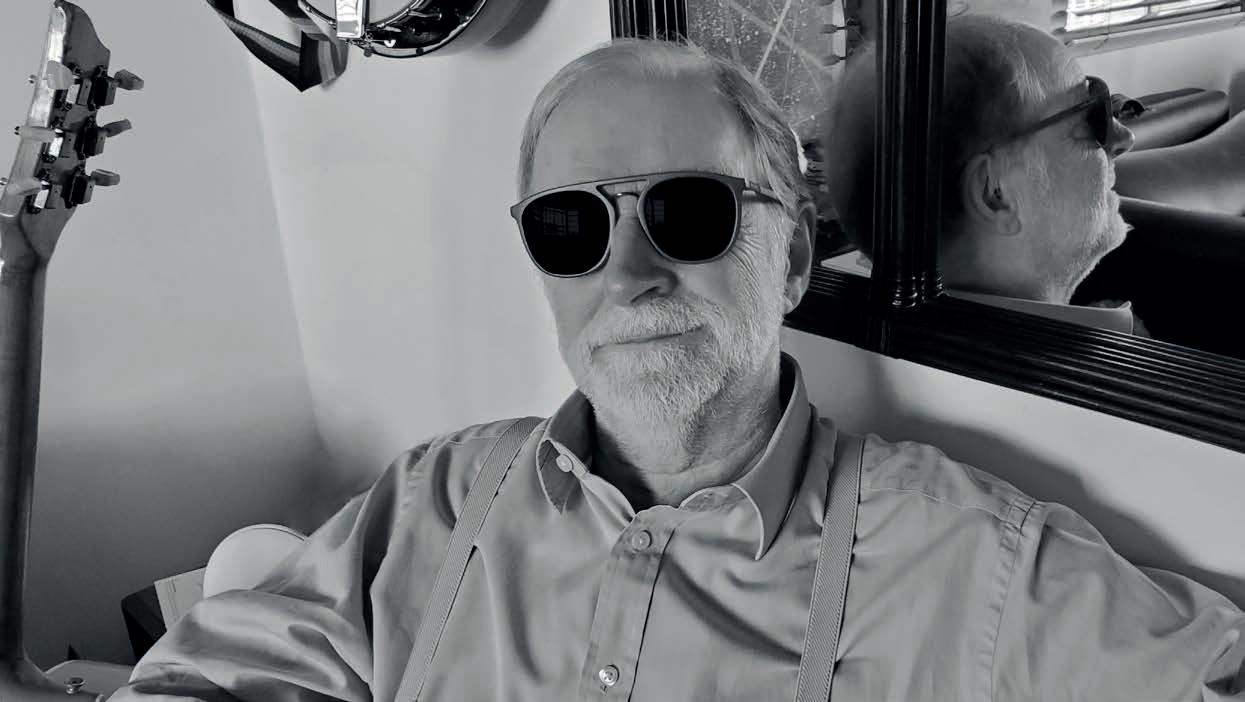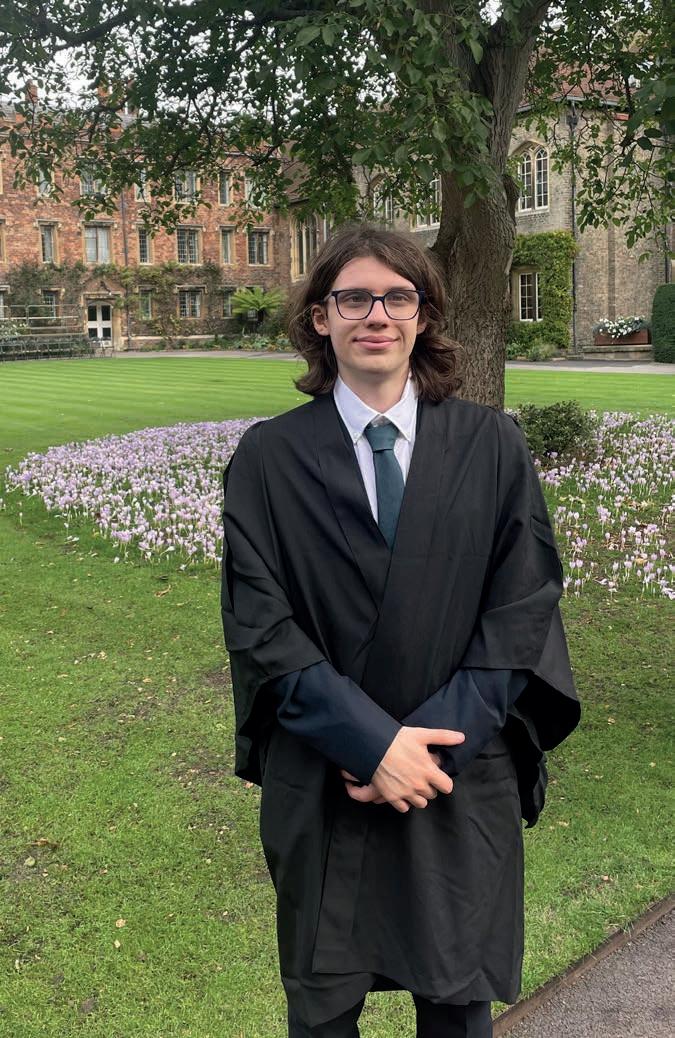
1 minute read
Four Questions with Sir Robin Millar CBE
Sir Robin Millar CBE (1970) is the internationally renowned music producer behind 44 no. 1 hits and 160 Gold and Platinum discs. He has worked with artists including Sade, Everything But The Girl, Sting and Fine Young Cannibals, and has sold more records than Jay-Z and Johnny Cash. Since studying Law at Queens’, he has been a successful businessman, philanthropist and campaigner for vulnerable people, most recently in his role as Chair of the Board of Trustees for the disability charity Scope. He has supported Queens’ as a donor and benefactor for many years, which he says is part of acknowledging the pivotal role that the College played in his future success. Robin has had no sight since 1985 as a result of the condition retinitis pigmentosa.
In addition to his highly successful producing career, Robin has also released three albums as a solo artist. Music was a big part of his childhood and formative years – his father played the piano and his mother sang all the time at home. He is the Chair of the Board of Trustees at the Institute for Apprenticeships and Technical Education, with first-hand experience of apprenticeships from starting out in the music business as a technology apprentice.
Advertisement
Robin is a tireless campaigner for equity for all – in addition to his current work with Scope, he organised fundraising concerts for Artists Against Apartheid, collaborated on UNICEF fundraisers, and worked in Africa and Asia with disabled children. He emphasises the important difference between equality and equity when considering inclusion for all minority groups, including disabled people, in society. While equality means everyone is treated the same way, regardless of differences, equity ensures that everybody is equipped with what they need to succeed, taking into account other factors to determine what is fair.
In an open letter to Music Week in 2022, Robin said, “All of us who represent minorities know how much work there is still to do but the response to our pleas need to be noticed for that progress to be meaningful.” He notes that he often sees people with disabilities or people from different ethnic backgrounds with ‘Founder’ in their email footer, and that this shows that they may not have succeeded in getting in the door with other employers, and/or that their resilience, determination and focus told them that they needed to forge their own path.










